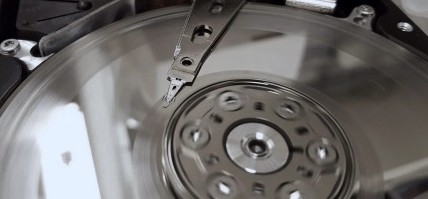 you know things are bad when people start complaining about how terrible things will
be in the future. It's a way of convincing ourselves that our situation isn't really
that bad after all.
you know things are bad when people start complaining about how terrible things will
be in the future. It's a way of convincing ourselves that our situation isn't really
that bad after all.
I'm talking, of course, about robots. Someday all our politicians will be robots: they'll stand in front of the camera saying things like “They were never going to let me be president!” after they lose the election after bumping their monitor on that stainless steel ceiling.
A recent prediction by a bunch of scientists somewhere claims that all physical blue-collar work—delivering pizzas, building highways, driving cars, and so forth—will soon be done by robots, and we carbon units will be free at last to live in the clouds and do the purely mental, imaginative work.

Welcome your new boss
Surrrrrre we will.
If—and this is a big if, with corporations like Google in charge—somebody ever designs a truly intelligent robot, the first thing that will happen is that all the college professors, scientists, doctors, lawyers, news reporters, intellectuals, entertainers, bloggers, and most of all robotics engineers will be out on the street selling pencils (which will be made by robots). All that's left will be people whose job is to tell other people what to do. In a word, bureaucrats.
If you've ever worked at a university, a big corporation, or a government office, it will be something like that. In those places, nothing is ever done without filling out forms, which the bureaucrats must first approve.
There are few things in this world as vindictive as a bureaucrat, though they're only doing their job, and when robots take the jobs of those few remaining people who actually do something useful, the only occupations left will be bureaucrat, drug pusher, prostitute, and politician. These four occupations are the apex of biological privilege. The Village People got the gay part right, but the rest of it totally wrong.
Bureaucrats are defined by two qualities: rent-seeking and collectivism.
- Rent-seeking The job of bureaucrats is to stand in the way of getting anything done. Nothing can be done unless it goes through them, and they collect their salary—the rent—through fees. Their survival depends on their ability to prevent people from bypassing the permitting process, which expands relentlessly, and they ruthlessly defend it. Don't get me wrong: many of them are nice people; they're just in a rotten system.
- Collectivism Anyone in the job market knows about the collectivism already. Most jobs are filled by knowing somebody influential; most of the jobs on job-seeking websites are fake, put there because of some rule that says the job has to be advertised to the public. That's why so many people recommend that you “network,“ which is a euphemism for sucking up to as many people as possible. (In academia it's even worse: you have to send three letters of recommendation before they will even look at your résumé. That may be one reason why no one ever ventures an unapproved opinion on campuses.)
As collectivism grows, social connections become ever more important. In a pure socialist society, you need connections to buy toilet paper, you need to be a bigshot to find a plumber, and only the privileged class gets to buy pork chops.
Of course, from time to time the bureaucrats dispense perks. Those in power bribe the bureaucrats, and the bureaucrats bribe those in power by offering them social status, and protect them against outsiders who threaten the system by creating commerce and culture and generally being free.
This, it so happens, is the same social dynamic that empowers the Mafia. And in a real sense, a bureaucracy is a kind of protection racket. So in the future, there will be two kinds of guys running everything: the robots and the communitarian descendants of guys named Vito and Luigi, and the rest of us will just sit around and talk about the good old days when there were such things as “jobs” and when you could get really good pencils.
It won't be any picnic for the robots, though. They'll be ruthlessly efficient at “recycling” the older models. Their lives will be nasty, brutish, and short.
It won't be all bad for humans. We will still have value. Instead of humans designing machines, machines will design humans. Since humans can simply be grown instead of meticulously manufactured and programmed, they're cheaper, and they'll be useful as disposable labor for hazardous environments where a robot could get damaged.
If we complain, the robots will just accuse us of being old and standing in the way of progress, and pining for our lost biological privilege. So be careful about the ideologies you create; someday they will be used against you.
apr 21 2018, 6:12 am
